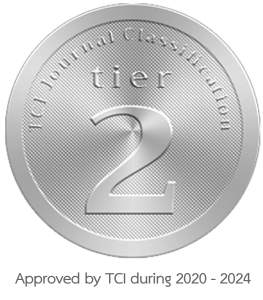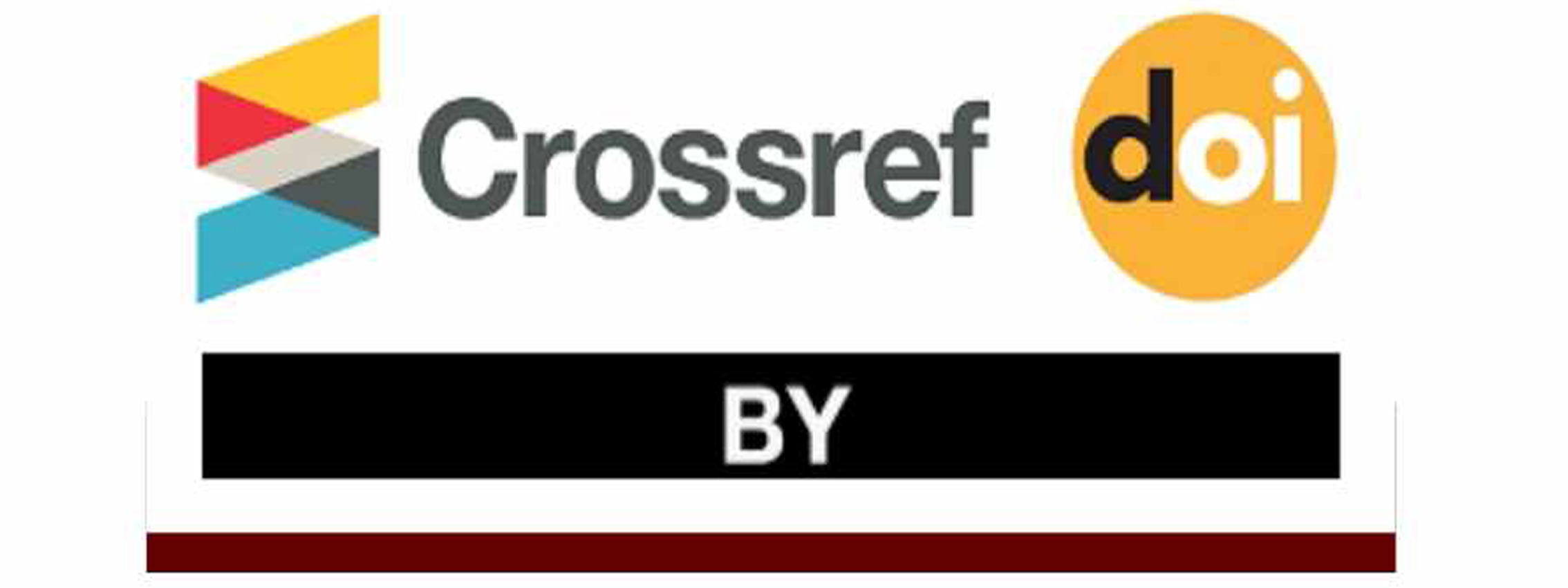The relationship between intrinsic motivation, self-efficacy, self-regulated learning, and English learning achievement in Chinese high school students
DOI:
https://doi.org/10.62819/jel.2024.578Keywords:
English language achievement, intrinsic motivation, self-efficacy, self-regulated learning (SRL)Abstract
This study investigated the relationships between intrinsic motivation, self-efficacy, self-regulated learning, and English learning achievement among Chinese high school students. A total of 237 10th-grade students in China participated, responding to a 5-point Likert scale questionnaire. Using descriptive and referential statistical analyses, the study found that self-efficacy had a strong correlation with SRL strategies, particularly goal setting and planning. Intrinsic motivation also showed positive, though slightly weaker, correlations with these SRL strategies. Both intrinsic motivation and self-efficacy were closely linked to English language achievement, with self-efficacy demonstrating a stronger relationship. Additionally, SRL strategies such as goal setting, monitoring, and effort regulation were significantly associated with better English learning outcomes, emphasizing their crucial role in academic success. The findings suggest that enhancing intrinsic motivation, self-efficacy, and SRL strategies can substantially improve English language learning. The study recommends educational strategies that focus on these key factors to boost students’ performance and offers suggestions for future research and educational practices.
References
Bai, B., & Guo, W. (2018). Influences of self-regulated learning strategy use on self-efficacy in primary school students’ English writing in Hong Kong. Reading & Writing Quarterly, 34(6), 523-536. https://doi.org/10.1080/10573569.2018.1499058 DOI: https://doi.org/10.1080/10573569.2018.1499058
Bai, B., Chao, G. C. N., & Wang, C. (2019). The relationship between social support, self-efficacy, and English language learning achievement in Hong Kong. TESOL Quarterly, 53(1), 208-221. https://www.jstor.org/stable/45214915 DOI: https://doi.org/10.1002/tesq.439
Bai, B., & Guo, W. (2021). Motivation and self-regulated strategy use: Relationships to primary school students’ English writing in Hong Kong. Language Teaching Research, 25(3), 378-399. https://doi.org/10.1177/1362168819859921 DOI: https://doi.org/10.1177/1362168819859921
Bai, B., & Wang, J. (2023). The role of growth mindset, self-efficacy and intrinsic value in self-regulated learning and English language learning achievements. Language Teaching Research, 27(1), 207-228. https://doi.org/10.1177/13621688209331 DOI: https://doi.org/10.1177/1362168820933190
Bai, B., & Wang, J. (2023). Conceptualizing self-regulated reading-to-write in ESL/EFL writing and investigating its relationships to motivation and writing competence. Language Teaching Research, 27(5), 1193-1216. https://doi.org/10.1177/1362168820971740 DOI: https://doi.org/10.1177/1362168820971740
Bandura, A., & Wessels, S. (1997). Self-efficacy (pp. 4-6). Cambridge University Press. http://www.des.emory.edu/mfp/BanEncy.html
Bandura, A. (2011). A social cognitive perspective on positive psychology. International Journal of Social Psychology, 26(1), 7-20. https://doi.org/10.1174/021347411794078444 DOI: https://doi.org/10.1174/021347411794078444
Chen, Y. (2020). Correlation between self-efficacy and English performance. International Journal of Emerging Technologies in Learning (iJET), 15(8), 223-234. https://www.learntechlib.org/p/217075/. DOI: https://doi.org/10.3991/ijet.v15i08.13697
Chen, J., Lin, C. H., Chen, G., & Fu, H. (2023). Individual differences in self-regulated learning profiles of Chinese EFL readers: A sequential explanatory mixed-methods study. Studies in Second Language Acquisition, 45, 955-978. https://doi.org/10.1017/S0272263122000584 DOI: https://doi.org/10.1017/S0272263122000584
Cohen, J. (2013). Statistical power analysis for the behavioral sciences. Routledge. https://doi.org/10.4324/9780203771587 DOI: https://doi.org/10.4324/9780203771587
Crystal, D. (2003). English as a global language. Cambridge university press. DOI: https://doi.org/10.1017/CBO9780511486999
Darling-Hammond, L. (2010). Teacher education and the American future. Journal of Teacher Education, 61(1-2), 35-47. https://doi.org/10.1177/0022487109348024 DOI: https://doi.org/10.1177/0022487109348024
Dent, A. L., & Koenka, A. C. (2016). The relation between self-regulated learning and academic achievement across childhood and adolescence: A meta-analysis. Educational Psychology Review, 28, 425-474. https://doi.org/10.1007/s10648-015-9320-8 DOI: https://doi.org/10.1007/s10648-015-9320-8
Dörnyei, Z. (2014). The psychology of the language learner: Individual differences in second language acquisition. Routledge. https://doi.org/10.4324/9781410613349 DOI: https://doi.org/10.4324/9781410613349
Dörnyei, Z., & Ushioda, E. (2021). Teaching and researching motivation. Routledge. https://doi.org/10.4324/9781351006743 DOI: https://doi.org/10.4324/9781351006743
Gardner, R. C. (2007). Motivation and Second Language Acquisition. Porta Linguarum, 8, 9-20. https://doi.org/10.30827/Digibug.31616 DOI: https://doi.org/10.30827/Digibug.31616
Guo, W., Bai, B., Zang, F., Wang, T., & Song, H. (2023). Influences of motivation and grit on students’ self-regulated learning and English learning achievement: A comparison between male and female students. System, 114, 103018 https://doi.org/10.1016/j.system.2023.103018 DOI: https://doi.org/10.1016/j.system.2023.103018
Kim, D. H., Wang, C., Ahn, H. S., & Bong, M. (2015). English language learners’ self-efficacy profiles and relationship with self-regulated learning strategies. Learning and Individual Differences, 38, 136-142. https://doi.org/10.1016/j.lindif.2015.01.016 DOI: https://doi.org/10.1016/j.lindif.2015.01.016
Kitichaidateanan, P., & Sukying, A. (2025). Decoding success: Investigating the impact of trait and state strategies on reading test performance among Thai high school learners. World Journal of English Language, 15(1), 88-100. https://doi.org/10.5430/wjel.v15n1p88 DOI: https://doi.org/10.5430/wjel.v15n1p88
Kormos, J., & Csizer, K. (2014). The interaction of motivation, self‐regulatory strategies, and autonomous learning behavior in different learner groups. TESOL Quarterly, 48(2), 275-299. https://doi.org/10.1002/tesq.129 DOI: https://doi.org/10.1002/tesq.129
Lim, S. L., & Yeo, K. J. (2021). A systematic review of the relationship between motivational constructs and self-regulated learning. International Journal of Evaluation and Research in Education (IJERE), 10(1), 330. http://doi.org/10.11591/ijere.v10i1.21006 DOI: https://doi.org/10.11591/ijere.v10i1.21006
Maftoon, P., & Tasnimi, M. (2014). Using self-regulation to enhance EFL learners’ reading comprehension. Journal of Language Teaching and Research, 5(4), 844. http://doi:10.4304/jltr.5.4.844-855 DOI: https://doi.org/10.4304/jltr.5.4.844-855
Matsuzaki Carreira, J. (2012). Affective factors contributing to intrinsic motivation for learning English among elementary school students in Japan. In T. Muller, S. Herder, J. Adamson, & P. S. Brown (Eds.), Innovating EFL teaching in Asia (pp. 157-174). Palgrave Macmillan. https://doi.org/10.1057/9780230347823_15 DOI: https://doi.org/10.1057/9780230347823_15
Noels, K. A., Pelletier, L. G., Clément, R., & Vallerand, R. J. (2000). Why are you learning a second language? Motivational orientations and self‐determination theory. Language Learning, 50(1), 57-85. https://doi.org/10.1111/0023-8333.00111 DOI: https://doi.org/10.1111/0023-8333.00111
Oxford, R. L. (2016). Teaching and researching language learning strategies: Self-regulation in context. Routledge. https://doi.org/10.4324/9781315719146 DOI: https://doi.org/10.4324/9781315719146
Panadero, E. (2017). A review of self-regulated learning: Six models and four directions for research. Frontiers in Psychology, 8, 422. https://doi.org/10.3389/fpsyg.2017.00422 DOI: https://doi.org/10.3389/fpsyg.2017.00422
Pintrich, P. R., Smith, D. A., Garcia, T., & McKeachie, W. J. (1993). Reliability and predictive validity of the Motivated Strategies for Learning Questionnaire (MSLQ). Educational and Psychological Measurement, 53(3), 801-813. https://doi.org/10.1177/001316449305300302 DOI: https://doi.org/10.1177/0013164493053003024
Pintrich, P. R., & De Groot, E. V. (1990). Motivational and self-regulated learning components of classroom academic performance. Journal of Educational Psychology, 82(1), 33-40. DOI: https://doi.org/10.1037//0022-0663.82.1.33
Pintrich, P. R. (2000). The role of goal orientation in self-regulated learning. Handbook of self-regulation/Academic. https://doi.org/10.1016/B978-012109890-2/50043-3 DOI: https://doi.org/10.1016/B978-012109890-2/50043-3
Pintrich, P. R. (2004). A conceptual framework for assessing Motivation and self-regulated learning in college students. Educational Psychology Review, 16, 385-407. https://doi.org/10.1007/s10648-004-0006-x DOI: https://doi.org/10.1007/s10648-004-0006-x
Randi, J. (2017). Teaching and learning hand in hand: adaptive teaching and self-regulated learning. Teachers College Record, 119(13), 1-34. https://doi.org/10.1177/016146811711901310 DOI: https://doi.org/10.1177/016146811711901310
Ryan, R. M., & Deci, E. L. (2000). Self-determination theory and the facilitation of intrinsic motivation, social development, and well-being. American Psychologist, 55(1), 68. https://doi.org/10.1037/0003-066X.55.1.68 DOI: https://doi.org/10.1037//0003-066X.55.1.68
Schunk, D. H., & Pajares, F. (2002). The development of academic self-efficacy. In Development of achievement motivation (pp. 15-31). Academic Press. https://doi.org/10.1016/B978-012750053-9/50003-6 DOI: https://doi.org/10.1016/B978-012750053-9/50003-6
Schunk, D. H., & DiBenedetto, M. K. (2020). Motivation and social cognitive theory. Contemporary Educational Psychology, 60, 101832. DOI: https://doi.org/10.1016/j.cedpsych.2019.101832
Schunk, D. H., & Zimmerman, B. J. (Eds.). (2012). Motivation and self-regulated learning: Theory, research, and applications. Routledge. DOI: https://doi.org/10.4324/9780203831076
Shen, B., Wang, Y., Yang, Y., & Yu, X. (2023). Relationships between Chinese university EFL learners’ academic emotions and self-regulated learning strategies: A structural equation model. Language Teaching Research, 13621688221144832. https://doi.org/10.1177/13621688221144832 DOI: https://doi.org/10.1177/13621688221144832
Shen, B., & Bai, B. (2024). Chinese university students’ self-regulated writing strategy use and EFL writing performance: Influences of self-efficacy, gender, and major. Applied Linguistics Review, 15(1), 161-188. https://doi.org/10.1515/applirev-2020-0103 DOI: https://doi.org/10.1515/applirev-2020-0103
Sukying, A. (2021). Choices of language learning strategies and English proficiency of EFL university learners. LEARN Journal: Language Education and Acquisition Research Network, 14(2), 59-87. https://so04.tci-thaijo.org/index.php/LEARN/article/view/253261
Teng, L. S., Yuan, R. E., & Sun, P. P. (2020). A mixed-methods approach to investigating motivational regulation strategies and writing proficiency in English as a foreign language contexts. System, 88, 102182. DOI: https://doi.org/10.1016/j.system.2019.102182
Teng, L. S., & Zhang, L. J. (2020). Empowering learners in the second/foreign language classroom: Can self-regulated learning strategies-based writing instruction make a difference?. Journal of Second Language Writing, 48, 100701. https://doi.org/10.1016/j.system.2023.103018 DOI: https://doi.org/10.1016/j.jslw.2019.100701
Teng, L. S. (2022). Self-regulated learning and language learning strategies. In Self-regulated Learning and Second Language Writing: Fostering strategic language learners (pp. 15-30). Cham: Springer International Publishing. https://doi.org/10.1007/978-3-030-99520-1_2 DOI: https://doi.org/10.1007/978-3-030-99520-1_2
Wang, C., Hu, J., Zhang, G., Chang, Y., & Xu, Y. (2012). Chinese College Students' Self Regulated Learning Strategies and Self-Efficacy Beliefs in Learning English as a Foreign Language. Journal of Research in Education, 22(2), 103-135.
Wigfield, A., Muenks, K., & Rosenzweig, E. Q. (2015). Children's achievement motivation in school. In Routledge international handbook of social psychology of the classroom (pp. 9-20). Routledge.
Wolters, C. A., & Hussain, M. (2015). Investigating grit and its relations with college students’ self-regulated learning and academic achievement. Metacognition and Learning, 10, 293-311. https://doi.org/10.1007/s11409-014-9128-9 DOI: https://doi.org/10.1007/s11409-014-9128-9
Ye, X. (2021). EFL Learning motivation differences of Chinese junior secondary school students: A mixed-methods study. Education 3-13, 49(2), 203-216. https://doi.org/10.1080/03004279.2019.1711143 DOI: https://doi.org/10.1080/03004279.2019.1711143
Zimmerman, B. J. (2000). Self-efficacy: An essential motive to learn. Contemporary educational psychology, 25(1), 82-91. https://doi.org/10.1006/ceps.1999.1016 DOI: https://doi.org/10.1006/ceps.1999.1016
Zimmerman, B. J. (2002). Becoming a Self-Regulated Learner: An Overview. Theory Into Practice, 41(2), 64–70. https://doi.org/10.1207/s15430421tip4102_2 DOI: https://doi.org/10.1207/s15430421tip4102_2
Zimmerman, B. J., & Schunk, D. H. (2011). Self-regulated learning and performance: An introduction and an overview. Handbook of self-regulation of learning and performance, 15-26.


















